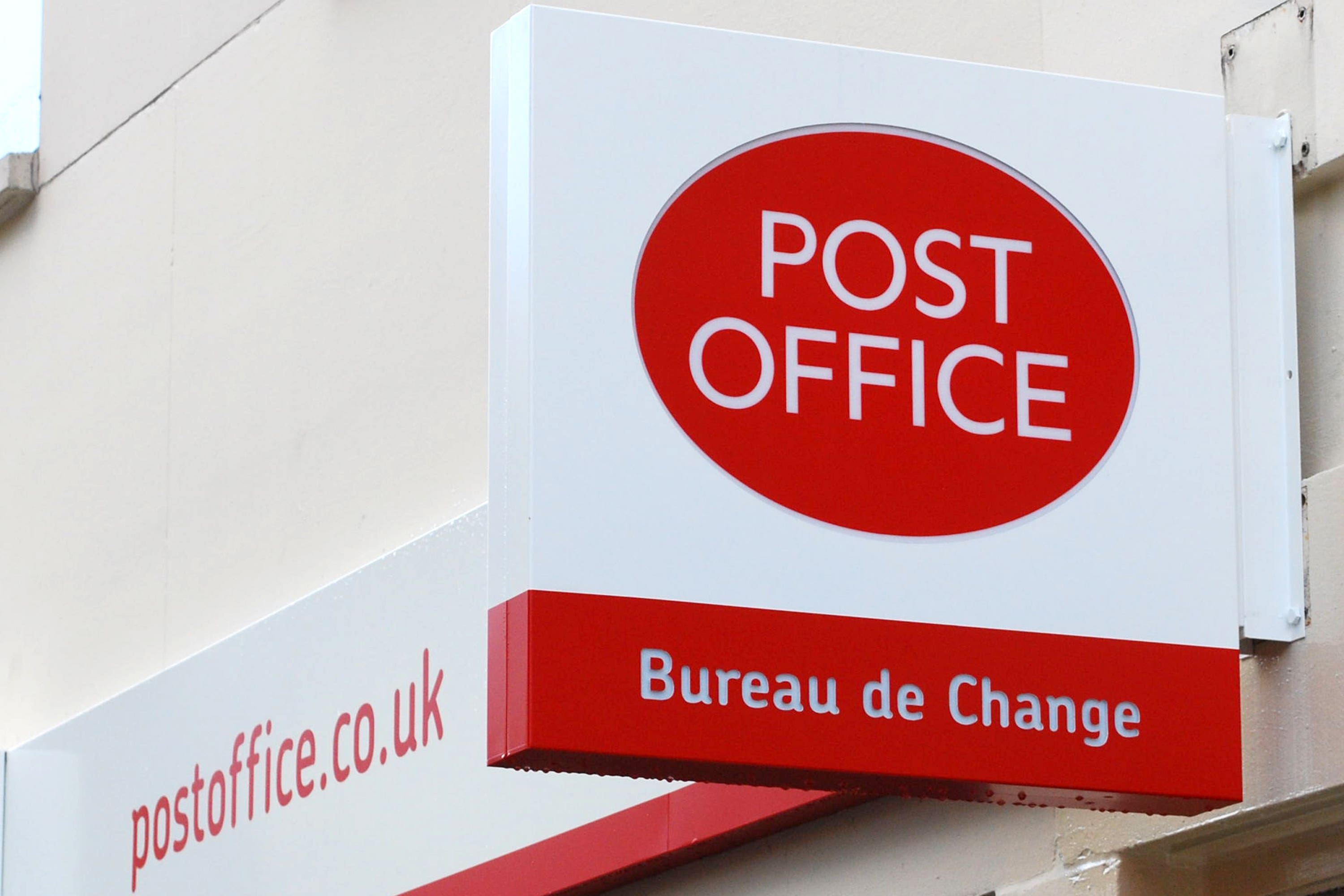Sub-postmasters may have been victims of miscarriage of justice – watchdog
The Scottish Criminal Cases Review Commission announced its decision on Tuesday.

Your support helps us to tell the story
From reproductive rights to climate change to Big Tech, The Independent is on the ground when the story is developing. Whether it's investigating the financials of Elon Musk's pro-Trump PAC or producing our latest documentary, 'The A Word', which shines a light on the American women fighting for reproductive rights, we know how important it is to parse out the facts from the messaging.
At such a critical moment in US history, we need reporters on the ground. Your donation allows us to keep sending journalists to speak to both sides of the story.
The Independent is trusted by Americans across the entire political spectrum. And unlike many other quality news outlets, we choose not to lock Americans out of our reporting and analysis with paywalls. We believe quality journalism should be available to everyone, paid for by those who can afford it.
Your support makes all the difference.Six sub-postmasters caught up in the Horizon computer system scandal may have been victims of miscarriages of justice, the Scottish Criminal Cases Review commission has ruled.
The six, one of whom has since died and is represented posthumously, are now entitled to appeal against the convictions for crimes of dishonesty arising from their roles as sub postmasters (SPM) at Post Office Ltd (POL).
Between 2000 and 2014, more than 700 sub-postmasters (SPMs) were falsely prosecuted based on information from the POL’s computerised accounting and sales system, Horizon.
Since then, many SPMs south of the border have had their criminal convictions for theft, fraud and false accounting overturned.
The cases we have referred today to the High Court are exceptional in the Commission’s caseload
The Scottish Criminal Cases Review Commission (SCCRC) has now referred the cases of Aleid Kloosterhuis, Anne Quarm on behalf of William Quarm (deceased), Susan Sinclair, Colin Smith, Judith Smith and Robert Thomson to the High Court of Justiciary for determination.
Susan Sinclair was convicted of one charge of embezzlement following a trial, while elsewhere Judith Smith pled guilty to one charge of fraud and William Quarm and the other three people to one charge of embezzlement each.
The SCCRC concluded that the five who pled guilty did so in circumstances that were, or could be said to be, clearly prejudicial to them.
It also concluded that new information about Horizon which has emerged since Mrs Sinclair’s trial would have had a material bearing on a critical issue at her trial, which is to say the shortfall of funds at the Post Office branch where she worked.
It found that the prosecution could be seen as oppressive because the absence of the relevant evidence rendered the trial unfair.
Bill Matthews, chairman of the Commission, said: “The Commission plays an integral part in the criminal justice system in Scotland, and is committed to addressing potential miscarriages of justice.
“Our function is to examine the grounds of review and to decide whether any of them meet our statutory test for a miscarriage.
“The cases we have referred today to the High Court are exceptional in the Commission’s caseload as each one is founded upon the operation of the Post Office’s computer system, Horizon, and the conduct of Post Office Ltd.
“We have issued detailed statements of reasons which address all of the relevant grounds. It is for the High Court to decide whether to quash the convictions of the individuals concerned.”
Susan Sinclair was convicted in 2004, after a trial at Peterhead Sheriff Court, of one charge of embezzlement and was sentenced to 180 hours’ community service.
Two years later, Robert Thomson pled guilty at Alloa Sheriff Court, to one charge of embezzlement. The court imposed 180 hours of community service and a compensation order of £5000.
In 2009 Judith Smith pled guilty, at Selkirk Sheriff Court, to one charge of fraud and was admonished by the court.
Then in 2010 William Quarm pled guilty, at Lochmaddy Sheriff Court, to one charge of embezzlement. The court imposed a community service order requiring 150 hours of unpaid work.
The other two cases date to 2012, when Aleid Kloosterhuis pled guilty, at Campbeltown Sheriff Court, to one charge of embezzlement and was sentenced to 12 months’ imprisonment, and to 2013 when Colin Smith pled guilty, at Dunfermline Sheriff Court, to one charge of embezzlement.
He was handed a community payback order requiring 180 hours of unpaid work.
Michael Walker, the Commission’s Chief Executive, said: “I thank our investigating team for their expertise and thoroughness.
“Our role in these six cases now ends – it is for the appeal court to decide whether any miscarriages of justice occurred.”
The Commission is currently reviewing five other cases said to have been affected by Horizon and has not yet taken a final decision in each of them.
A Crown Office and Procurator Fiscal Service spokesman said: “We note the terms of the Scottish Criminal Cases Review Commission referral.”